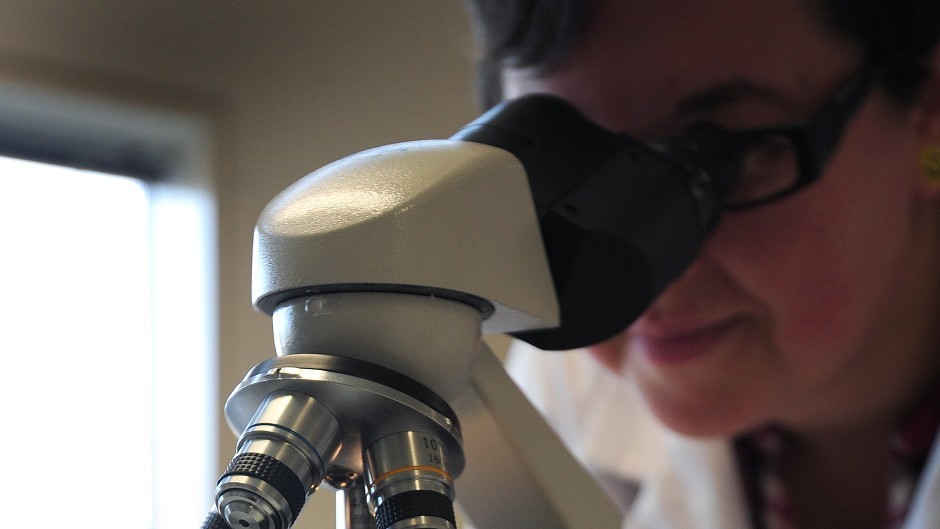North-east researchers believe they may have found a treatment for Covid-19 – in drugs commonly used to treat stroke sufferers.
The University of Aberdeen scientists suggest an aerosol version of a ‘clot-busting’ drug called tissue plasminogen activator (tPA) could be a “pragmatic” way to tackle lung injury complications caused by the virus.
The research, by Claire Whyte and Nicola Mutch from the university’s Cardiovascular and Diabetes Centre, alongside honorary research fellow Gael Morrow, has been published in the Journal of Thrombosis and Haemostasis.
Diseases similar to Covid-19, including the common flu, can create inflammation which results in deposits of a protein called fibrin, a major component of blood clots.
The build-up of fibrin reduces the amount of oxygen the lung can take in.
Patients with Covid-19 are prone to forming blood clots, which ultimately increases the risk of death.
Current advice is to treat Covid-19 patients with lung complications using medication to prevent blood clots forming.
However, these medications don’t help break down blood clots that have already formed.
In their article, the Aberdeen researchers propose the repurposing of tPA to target clots that have already formed in patients with Covid-19.
“Given the urgent time scale of treating severely ill patients and the current burden on the NHS, repurposing of existing therapies, such as tPA, is a pragmatic approach in addressing the lung injury complications associated with Covid-19,” said Dr Mutch.
The paper was backed up by additional research from the universities of Oxford and Reading, as well as the Royal Free Hospital in London.
